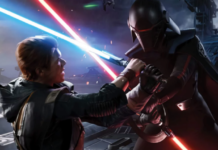Back in August of 2016, a diehard Metroid fan named Milton Guasti released a Metroid 2 remake called Project AM2R, or Another Metroid 2 Remake. The game was available to download to anyone for free, and as you might imagine, it did not last long before Nintendo shut it down. Naturally, the immediate reaction to the move was not a positive one, but Waypoint caught up with Nintendo boss Reggie Fils-Aime and asked him point blank why the move was made to pull the plug.
He said:
So, I think there needs to be clarity in what the line is, and, in our view, the line is when an initiative crosses from being an homage to something that is monetizing our IP. We allow homages to exist in a variety of different ways. And, for me personally, as a fan before I was an executive, I understand the attraction that you could have to our IP. But, when it transitions to something that… now, you're trying to monetize, you're trying to sell, you're trying to profit off of, that is what broaches or breaks through that line for us, where we have to claim our IP protection.
The problem with Reggie's explanation is that Project AM2R was not being monetized since it was a free download. Which the interviewer, Austin Walker picked up on and immediately asked a follow-up question on that point.
Reggie responded:
But again, to differentiate this, we have had conversations with entities that started as fans and became more of a business partner. Those conversations happen all the time, but again, when something transitions to a commercial product, and that's what [AM2R] was—there wasn't a charge, but it was now a commercial product.
The definition of what Nintendo considers to be a "commercial product" appears to stretch farther than simply making money off of something. If anything, it looks like Nintendo was trying to protect future financial income for the game they went on to reveal at E3 2017, Metroid: Samus Returns, which also happens to be a remake of Metroid 2.
In fact, Walker goes on to ask Fils-Aime for a definition of "commercial product, " and the answer sounds like just that, protection.
Well, again, it's all about… How do we protect our intellectual property? How do our creators, like Mr. Sakamoto, who created Metroid, and Nintendo control that intellectual property so that we can drive where it's going, versus someone else driving where it's going.That's where the line is very clear for us. And again, we could go on to YouTube and a variety of different places and see fans doing interesting things with our IP. But when it turns to driving the direction of the IP, or somehow monetizing or becoming a commercial project, that's where for us, the line has been crossed.
The real line with Project AM2R appears to have been timing.
Source: [Waypoint]







